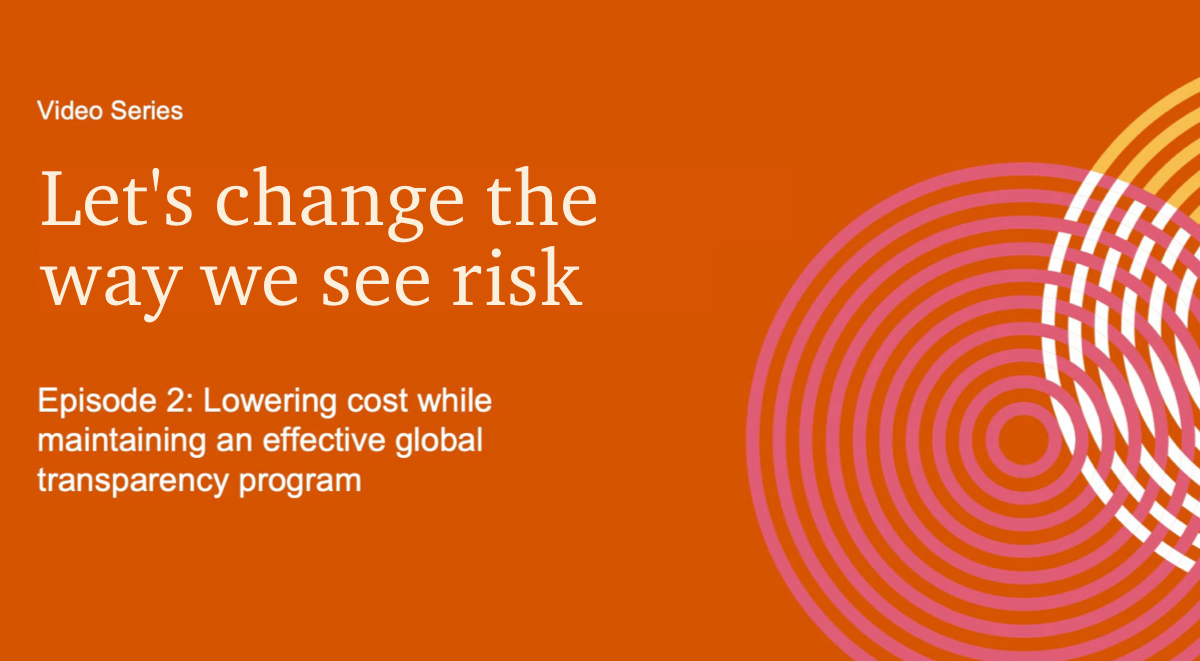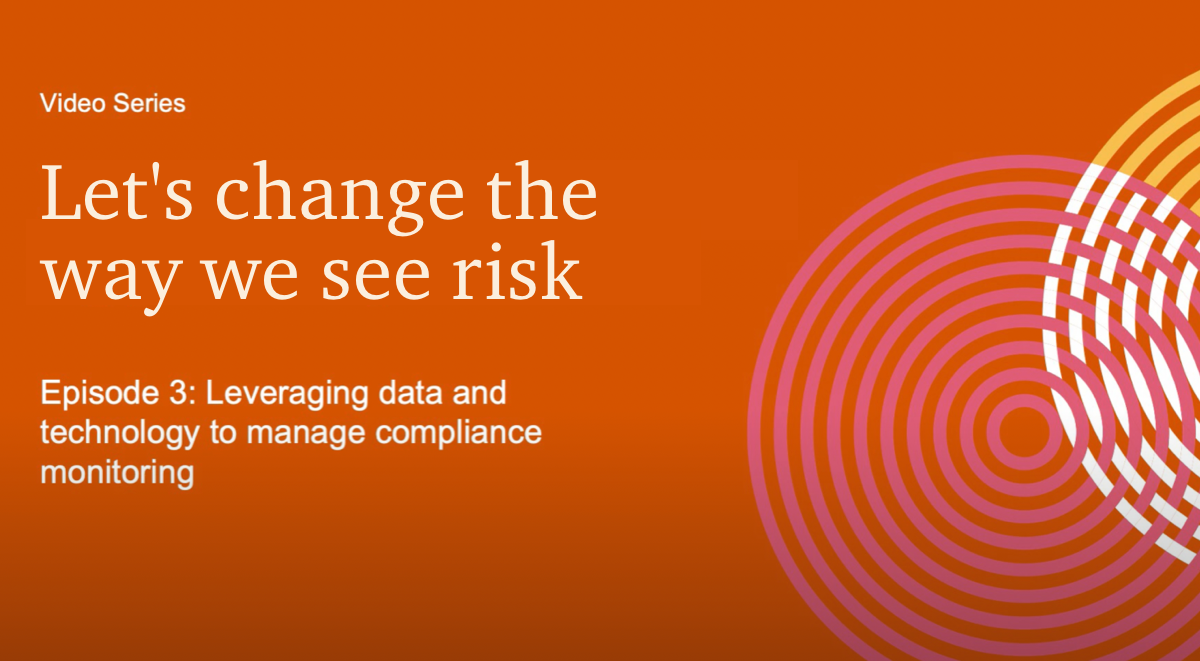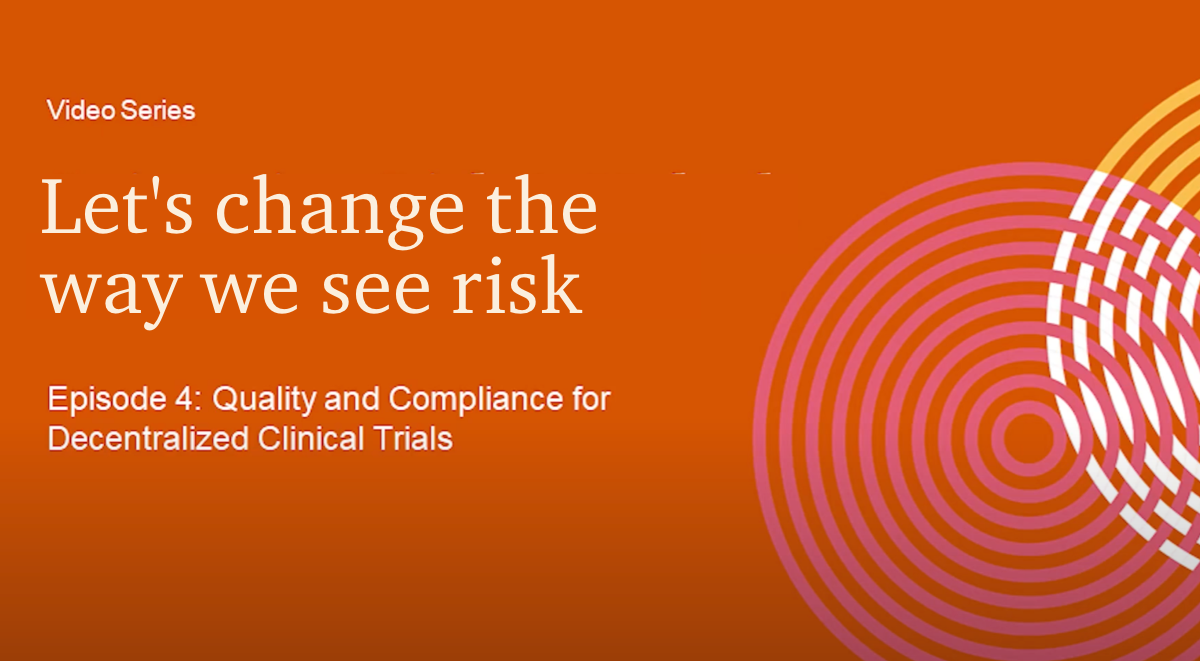Addressing HCP Engagement risk and unlocking value
January 29, 2023
Let's change the way we see risk
The changing healthcare professional (HCP) engagement landscape offers opportunities for companies to improve risk, save time, lower cost and enable a better stakeholder experience.
In the first installment of “Let's change the way we see risk” series, Tiffany Gallagher, Health Industries Risk and Regulatory Leader, PwC US, and Tim Canonico, Principal, Pharmaceutical and Life Sciences, PwC US, discuss the changing healthcare professional (HCP) engagement landscape and how PwC offers opportunities for pharmaceutical life sciences (PLS) professionals to improve risk, save time, lower cost and enable a better stakeholder experience.
As technology advances, so does the demand for better HCP experiences. Paper-based, legacy processes are no longer meeting expectations for the increasingly tech-savvy physician community looking to engage with Pharmaceutical and Life Sciences Companies more efficiently. The pandemic only accelerated the pace of tech adoption as safety and social distancing measures demanded innovations in digital engagement. This commercial demand is helping drive investment in digital portals, which in turn is helping drive transformation in HCP engagement.
HCP engagement directly impacts customer experience, and it comes with a significant amount of compliance risk. Legacy HCP processes have historically been heavily manual, and attempts at innovation have often led to clunky processes and disparate systems.
A decade ago, when healthcare companies started incorporating technology into their processes, the options were limited. You could choose manual spreadsheet work or build expensive, internal custom solutions that didn’t keep pace with change. Neither choice was ideal. These systems didn’t automate or integrate the end-to-end HCP engagement process very well and the outcomes left a lot to be desired.
Boutique firms stepped in to try to fill the innovation gap with pre-built, off-the-shelf solutions. These solutions were a step up from previously created customized tech, but still didn’t fit the bill when it came to integrating with the environment, operating at a global scale and handling different interactions.
To meet the current needs of an organization through HCP engagement technology, a platform should include:
End-to-end tech enablement of the HCP engagement process
Systems integrated within the environment to drive efficiency
A more compliant and better user experience
In response to demand, PwC built its own HCP engagement platform that finally delivers on the three big asks above — and it allows our clients to manage risk, save time and create a better experience.
Using Interactions Hub, a PwC product, can reduce costs significantly by:
Removing the need for multiple licenses
Eliminating duplication of work
Speeding up throughput
Eliminating inefficient tasks and positions
While the right tech is key, navigating internally is integral to getting these initiatives off the ground. You need buy-in from cross-functional stakeholders — that’s crucial to the success of any HCP engagement technology solution. The more successful companies that make these changes obtain stakeholder support by building a business case for the new tech. For HCP engagement, stakeholders include but are not limited to:
Finance
IT
Commercial
Medical affairs
Compliance
R&D
Legal
Communicating the benefits to the day-to-day tasks to all stakeholders can help increase the chances of a successful implementation. Show them all the ways by which each department can win, as well as how the organization will benefit long term, when making the business case.
Beyond tech, there’s an opportunity to enhance the operating model to help drive consistency in execution and generate economies of scale. Many employees working in HCP engagement management worldwide are using legacy systems and still struggle due to a lack of consistency in execution across their global networks and an absence of economies of scale.
Building centers of excellence, and, increasingly more popular, turning to co-sourcing has helped some companies to drive economies of scale and improve consistency, reducing costs and even keeping local affiliates focused on helping patients rather than excessively managing HCP.
PwC brings the critical consulting, technology and managed services capabilities together to help our clients a) reimagine the possible and design the right end-to-end process, b) tech enable that process with our Interactions Hub, a PwC product, and c) operate key aspects of the program using our managed services. Combining these capabilities allows our clients to unlock value, manage risk and deliver the experience their internal and external stakeholders expect.
Learn more about how Interactions Hub can help automate and streamline your HCP/HCO engagement process to free up valuable resources and allow employees to focus on high-value initiatives and activities.
Check out other related risk management insights

Explore our products
Stay read for new risks and remain compliant with products and technologies designed by industry experts — and built for your needs. Our consultants are here to help you keep your business protected and prepared so you can focus on what's next.
View products

